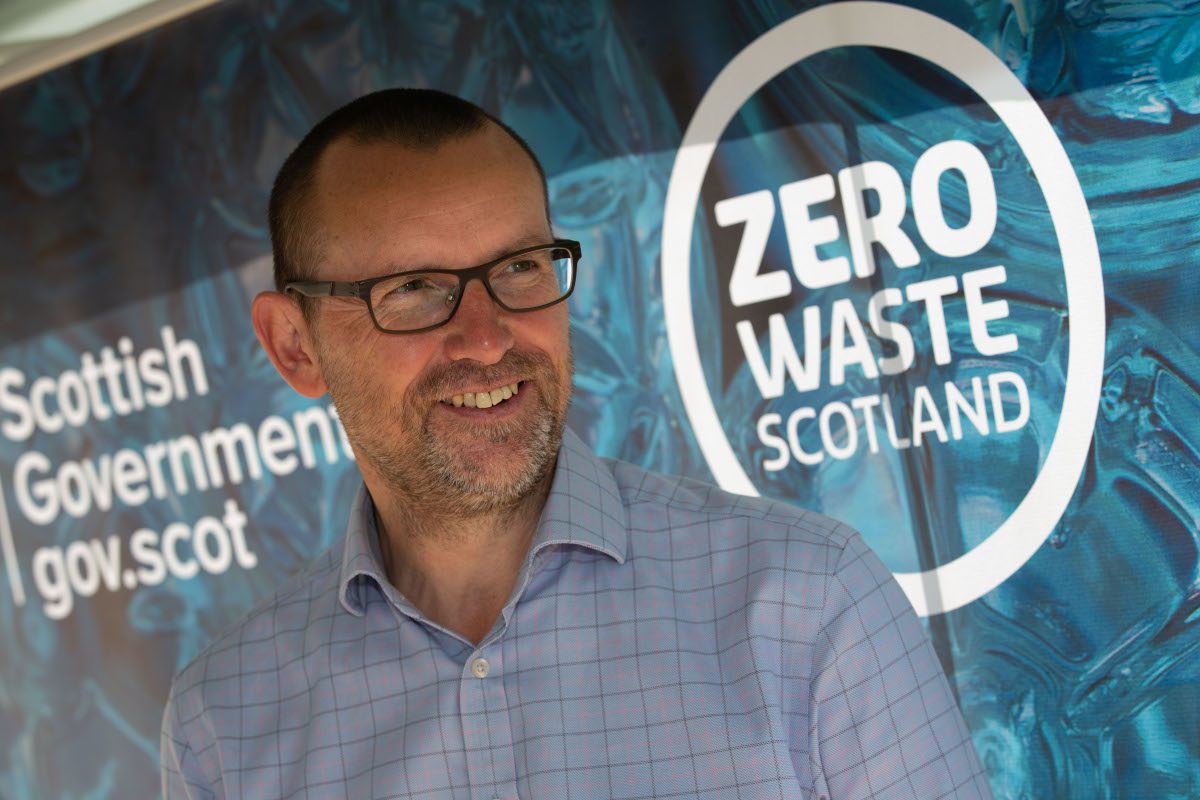
We need to go “beyond net-zero” to combat the climate crisis by tackling our huge consumption habit, said Zero Waste Scotland’s chief executive Iain Gulland speaking at a conference on sustainability in the public sector at the Royal Bank of Scotland’s Edinburgh headquarters on 4 February.
The group set out what it believes to be the next key steps needed to meet the Scottish Government’s landmark pledge to end Scotland’s contribution to the climate emergency by 2045.
It said Scotland’s net-zero target for 2045 was a significant step towards meeting the national pledge.
But it said the net-zero target only deals with half of Scotland’s total carbon footprint because it focuses almost exclusively on emissions created within the nation’s borders. It does not cover the 50 per cent of emissions generated overseas from all the imports which Scots rely on to supply the country’s demand for products and materials.
During the speech Gulland said: “We’re in a climate emergency, the world is literally burning, and Scotland unfortunately is part of the problem.
“The Scottish Government’s commitment to ending Scotland’s contribution to the crisis is a strong, welcome and necessary goal. It means reducing all our emissions to zero.
“Targeting net-zero is a fantastic start to help us get there, and Scotland’s net-zero target is better than most because unlike other countries, it includes international transport emissions from flights and shipping.
“But net-zero cannot be the end point. It only tackles half of Scotland’s total carbon footprint, focusing almost exclusively on the emissions created within our borders, our territorial emissions.
“To play our full part in tackling climate change we now need to focus on the other half too – all the emissions created overseas from the imports which feed our huge consumption habit.”
He added: “The need to move beyond net-zero is clear. How we do that is also clear. We need to switch to a circular economy which places value on the wellbeing of people and planet alike by eliminating waste and the harmful emissions it creates.
“Our traditional economy follows a simple but wasteful line of ‘make, take and throw’ which is totally unsustainable, particularly with all the needless single-use products we’ve grown accustomed to buying and binning daily.
“A circular economy keeps our limited resources in a ‘loop’ of use maximising value and minimising waste and emissions by reducing, reusing, repairing, remaking and finally recycling everything we use. This will significantly cut our unsustainable demand for new materials and products, including carbon-intensive imports.”
Spelling out the opportunities for the public sector and Scotland in “switching to circular”, Mr Gulland added: “Scotland’s public sector spends around £11 billion each year on goods and services – or about ten per cent of our nation’s entire GDP. That gives public sector organisations vast influence on how the whole nation does business. You are uniquely placed to decide and transform the way Scotland demands and uses products and services.”
Zero Waste Scotland is raising awareness of the fact that demand for resources is the single greatest cause of Scotland’s global carbon emissions, with four fifths of Scotland’s carbon emissions created by the goods and materials we produce, consume and too often waste.
The organisation said the opportunities to scale up the circular economy were within reach. It is already working with a diverse range of firms pioneering the switch to circular in Scotland, including Glasgow-based EGG Lighting (which leases light fixtures as a service instead of a product to buy) and East Kilbride firm Re-Tek, which leases refurbished computer equipment.
More information on all Zero Waste Scotland’s programmes can be found at https://www.zerowastescotland.org.uk/.







